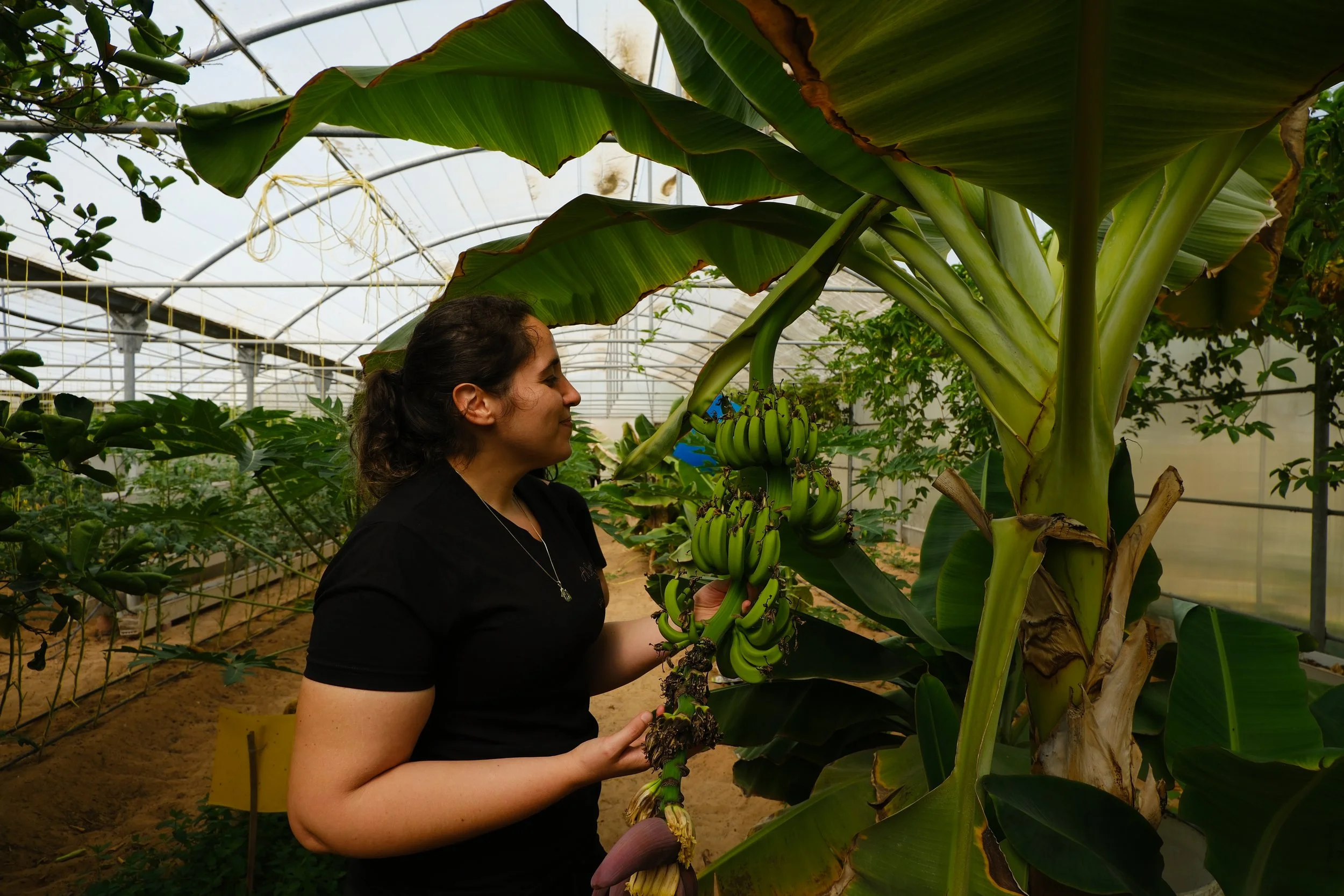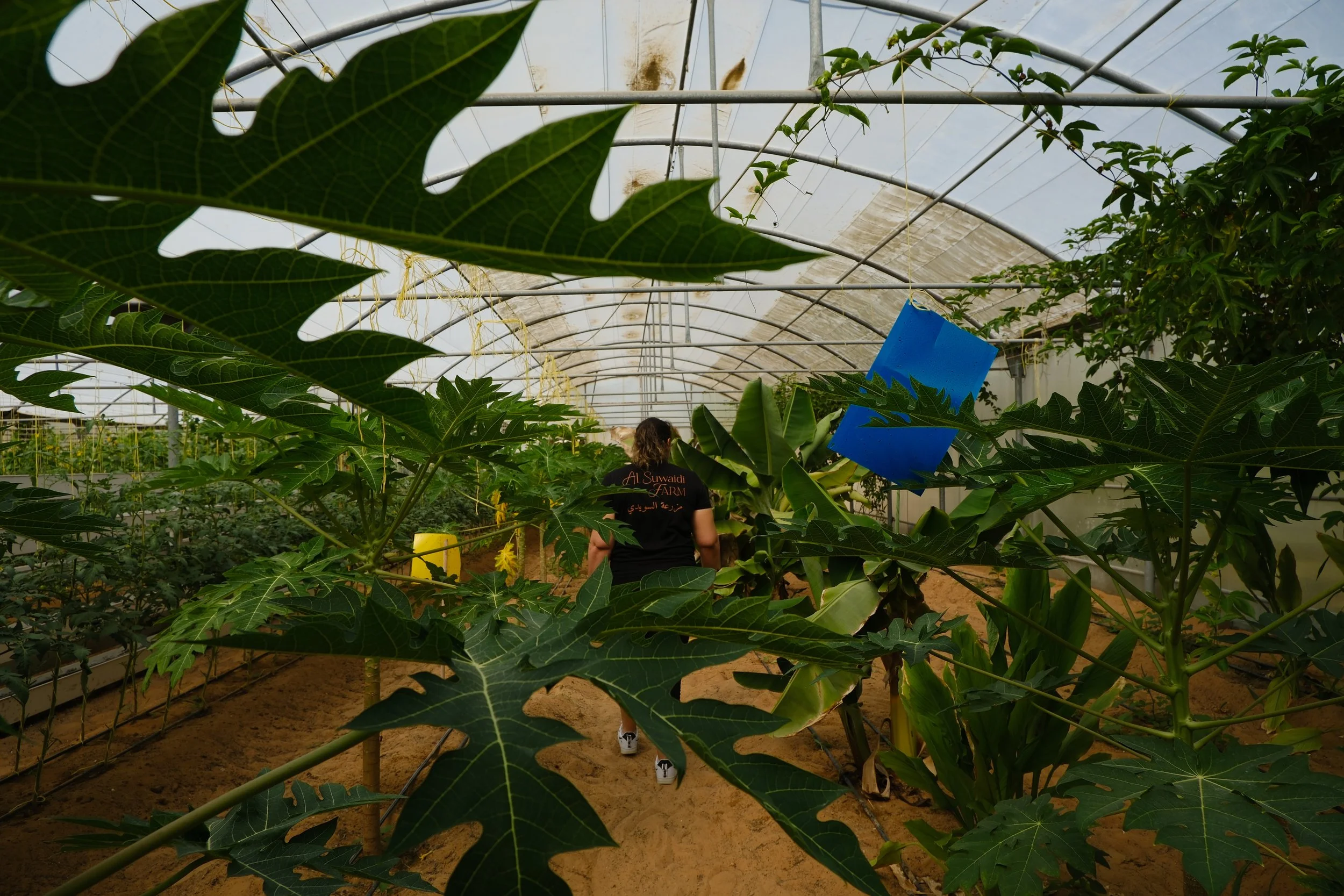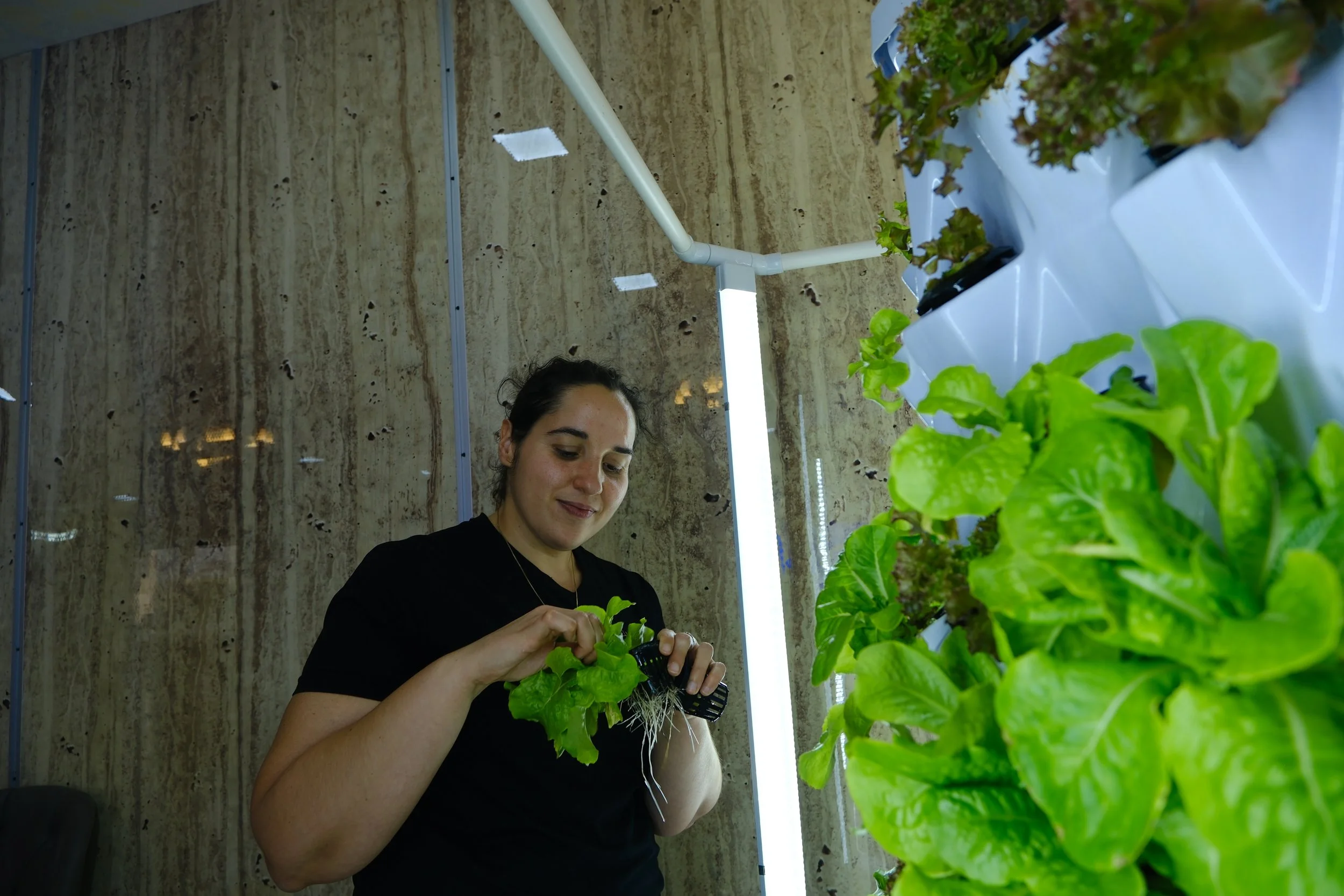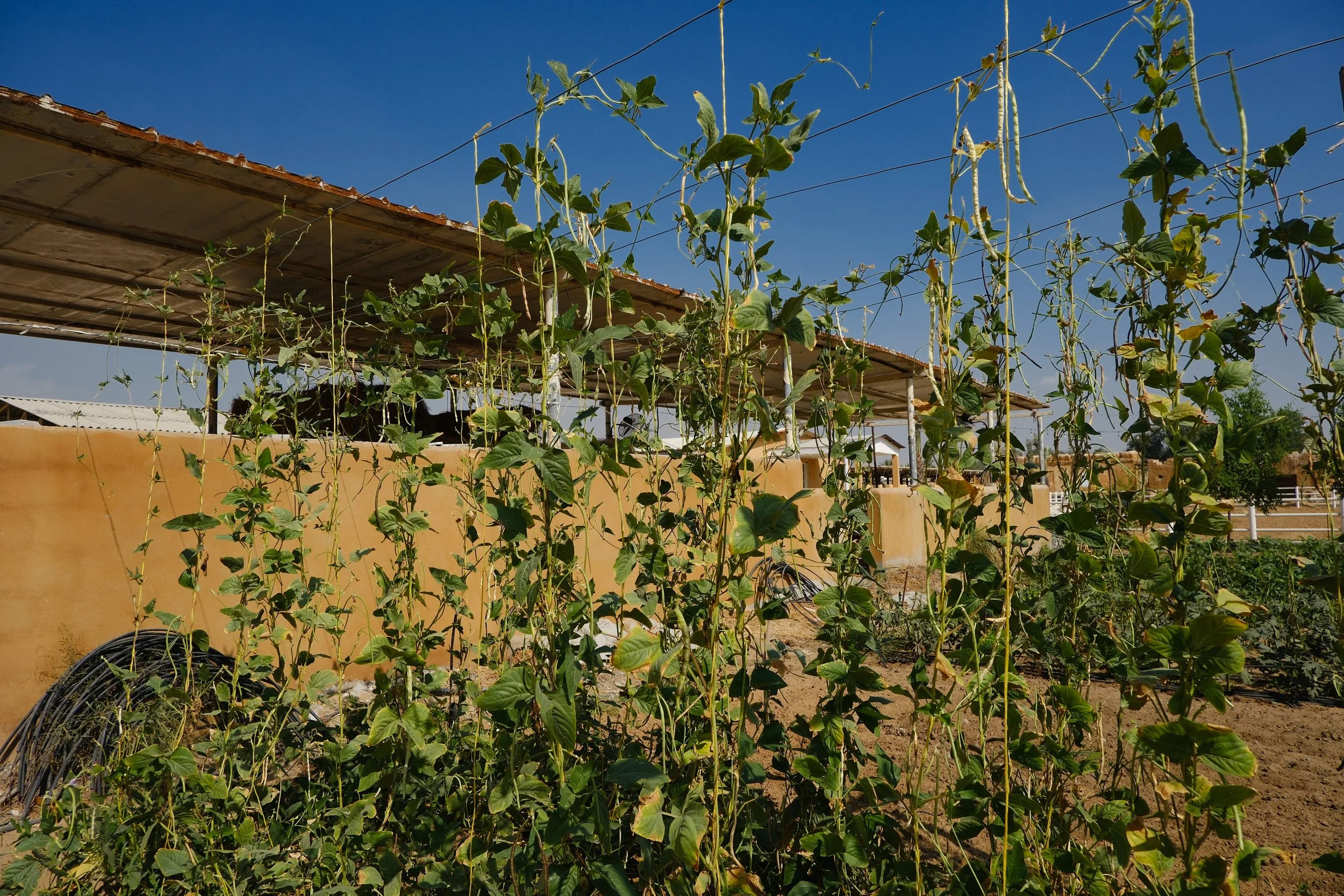Born And Bred Biophile
Ghita Bahmad was born and bred biophile. Unlike the other kids, she didn’t look at a KitKat and excitingly think “sugar.” She looked at it and inquisitively thought: what exactly is in this? Where did it come from? How did it come to be? Young Ghita was infinitely curious – a curiosity that extended beyond the levels you would typically expect from a child.Don’t worry about sounding professional. Sound like you. There are over 1.5 billion websites out there, but your story is what’s going to separate this one from the rest. If you read the words back and don’t hear your own voice in your head, that’s a good sign you still have more work to do.
There was one area that Ghita was particularly captivated by: the relationship between food and nature. It makes sense. She was brought up in a quintessentially Moroccan milieu. Her mother took food seriously, not only out of passion but also because the sophisticated nature of Moroccan cuisine demanded it. Comparable to French or Indian in its complexity and detail, it is one of the most elaborate in the world. Moroccan gastronomy is an art of slow cooking, steaming, layering, deliberate flavor combinations and preservation methods. During the month of Ramadan, Ghita’s mom and aunts would be arranged in a daily meal preparation supply-chain, each with individually allocated tasks arranged chronologically over a full day of labor. Young Ghita had a front row seat to this culinary spectacle.
It was only when she grew up and pursued an undergraduate degree in Food Engineering that Ghita discovered that Moroccan cuisine was also largely science. She also realized that her mom was low-key a food engineer herself. Ghita was studying chemical reactions that she grew up watching her mom do and had been part of the Moroccan culinary practice for generations. She was stunned when she realized that her mom had been doing Maillard reactions and enzymatic browning just to make mkharka, a traditional Moroccan biscuit.
Her father is Amazigh, from the indigenous communities of North Africa. A people whose connection to the land transcends sustenance to reach the realm of sanctity. Whenever she would visit her dad’s side of the family, Ghita was among a Bedouin tribe nestled in the mountains, with origins tracing back centuries and engrained in a profound connection to the land. Stemming from an early history of animism, this spiritual relationship with Earth informed much of the Amazigh’s agri/cultural practices which center around respect, empathy and gratitude for animals, plants and all living things.
From them, Ghita inherited an ‘invisible’ energetic pull to nature, closely linked to her instinct, that has always guided her through major life decisions. She had a moment of profound unease in 2020. She had been working at the same food conglomerate in Canada for 10 years, waiting for her next promotion, when she realized there had to be more to life than the boring corporate 9-5. For answers, Ghita didn’t seek the advice of a mentor, write a pros-and-cons list, look for another job, nor did she despair. For answers, Ghita did what she always does. She spent time alone in nature to reconnect with her true self and listen to her intuition.
Her instinct drew her to a distant land - one so unfamiliar that Ghita couldn’t even place it on the map. Yet, despite the uncertainty, she heeded the call of nature, packed her bags and set off for the United Arab Emirates.
When you put two and two together – Amazigh origins from her dad, culinary artistry and technicality from her mom and years of professional experience in the universe of food – it only makes sense that agriculture was Ghita’s next pursuit. It makes even more sense that she didn’t go for traditional agriculture, but the more sustainable, environmentally friendly, alternative: aeroponics.
It wasn’t just a more efficient method of growing food. For Ghita, it was a way to honor her roots: to feed people while protecting and serving the land she felt deeply connected to. The Earth was changing. Water was disappearing, arable land was shrinking, and conventional farming was draining what little remained. Aeroponics offered a path that decouples agriculture from nature - one that used 90% less water, thrived without soil and eliminated the need for fertilizers.
In true Ghita fashion, her curiosity about aeroponic agriculture started early on, in 2015 when she was still living in Canada. By the time she had moved to Dubai, she had already built the towers and had been successfully growing produce for herself and friends. Ghita’s aspiration was to sell the technology to her boss at the time. Little did she know back then that her instinct would completely redirect her.
The UAE was both a playground and a whitespace for indoor farming systems. In a country where 80% of food is imported, the opportunity for local and sustainable food production was sought after and at the top of government agendas. The UAE’s Food Security Strategy placed modern agriculture technologies that mitigate against water scarcity and the lack of arable land as a foremost lever in the battle against food insecurity. Right up Ghita’s alley. All she needed now was a space.
She had the option of the accelerator program, the tech co-working space or the research center. Instinctively, none of them felt right. Ghita already had her heart set on a space: a farm on the outskirts of Dubai. It took some convincing, a few rejections and a successful 2-months trial period for the Al-Suwaidi farm to become both the Food Engine and Ghita’s home. For a biophile, compromise was never an option. She would do whatever it took to root herself in nature.
Today, Ghita grows about 10 tons of produce every year, from peppers and tomatoes to leafy greens and strawberries, and teaches thousands of students across the UAE about indoor farming. She attributes her success to two factors. The first is the barakah of parents. Her dad works alongside her, as the Chief Operating Officer of the Food Engine. His presence, energy and expertise are a grounding force for Ghita, the plants and the business.
The second is her connection to Earth and its inhabitants, whether plants or animals, and the ancestral knowledge she carries with her wherever she goes. The Food Engine is the first and only aeroponic farm in the UAE to have successfully grown strawberries. Many, with far deeper pockets, tried and failed. Their mistake was treating produce like a product instead of another living being that thrives on reciprocity and respect, as well as water, light and nutrients.




